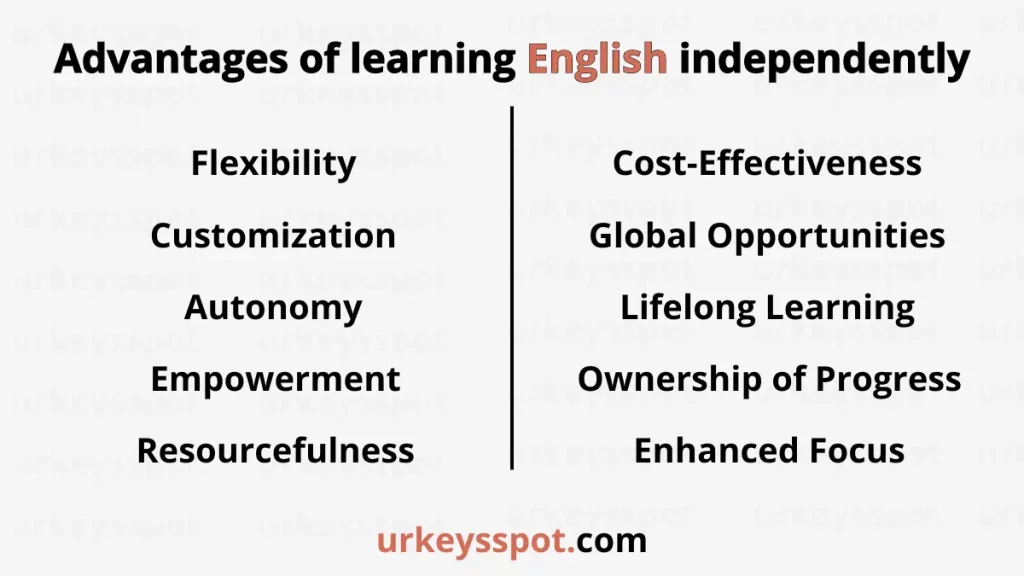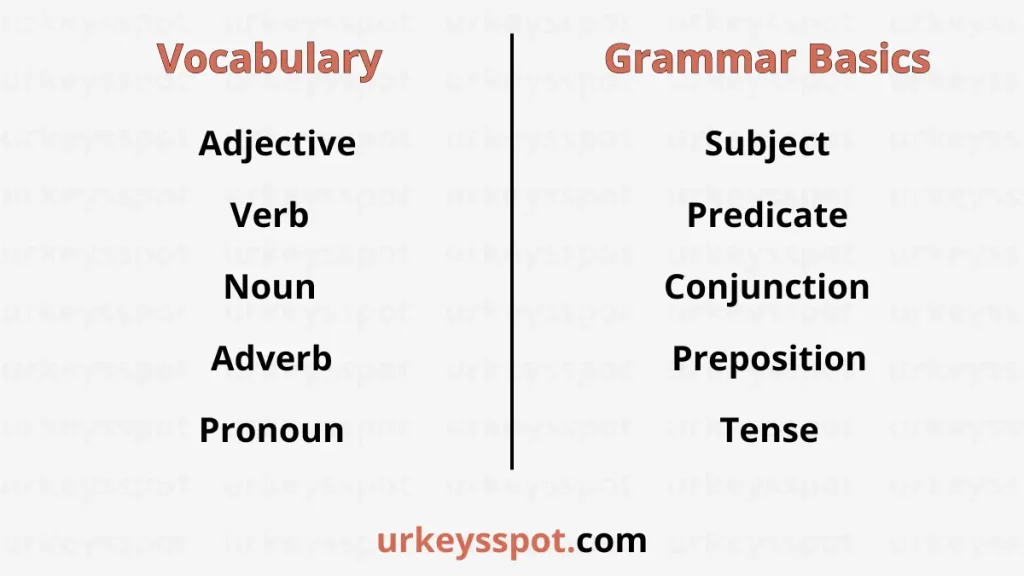In today’s digital age, the quest for learning has transcended traditional boundaries. With the advent of technology and the vast array of resources available online, mastering a new language, such as English, has become more accessible than ever. In this comprehensive guide, we delve into the realm of independent learning, exploring the ABCs of English: the fundamental methods to grasp the language without the aid of a teacher. Whether you’re a self-motivated learner seeking autonomy or simply looking to supplement your formal education, this article equips you with the tools and techniques necessary to embark on your journey towards English proficiency.
Introduction to Learning English Independently
Understanding the Importance of Self-learning English
In the realm of self-paced language acquisition, the significance of independent learning cannot be overstated. While traditional classroom settings offer structure and guidance, venturing into the realm of DIY language learning empowers individuals to chart their own course, tailor their study methods to suit their unique learning styles, and progress at their own pace.
Why Learn English Independently?

The decision to embark on the path of autodidactic English learning stems from a multitude of reasons. For some, it may be a matter of convenience, fitting language acquisition into busy schedules. For others, it may be a desire for autonomy and flexibility in their learning journey. Additionally, independent learning offers the opportunity for deeper engagement with the language, fostering a sense of ownership and accomplishment as proficiency grows.
Getting Started with the Basics
Building a Strong Foundation
Before diving into the intricacies of the English language, it’s crucial to lay a solid groundwork. Like constructing a sturdy building, mastering English begins with understanding its foundational elements.
Learning the English Alphabet (ABCs)
At the heart of English literacy lies the alphabet, a collection of 26 letters that form the building blocks of words and sentences. Embracing the ABCs of English entails familiarizing oneself with each letter’s name, sound, and written form. Engage in pronunciation practice, repeating each letter aloud and associating it with familiar words to reinforce retention.
Pronunciation Practice
Effective pronunciation is the cornerstone of clear communication in English. To hone your pronunciation skills, leverage online resources such as pronunciation guides and audio tutorials. Interactive platforms like Duolingo offer pronunciation exercises that provide immediate feedback, helping you refine your speech patterns and sound more natural in conversation.
Essential Vocabulary and Grammar
Mastering Vocabulary and Grammar Basics

As you progress in your English learning journey, proficiency in vocabulary and grammar becomes paramount. Building a robust vocabulary and grasping fundamental grammatical concepts serve as the scaffolding upon which fluent communication is constructed.
Basic English Vocabulary
Expand your lexicon by immersing yourself in everyday English usage. Explore common phrases and expressions through BBC Learning English‘s extensive collection of resources, ranging from articles and videos to interactive quizzes. Additionally, leverage flashcard apps like Anki to reinforce newly acquired words through spaced repetition.
Understanding Grammar Essentials
To navigate the intricacies of English grammar, familiarize yourself with essential concepts such as subject-verb agreement, tense usage, and sentence structure. Websites like the British Council offer comprehensive grammar guides, complete with explanations and examples, enabling you to grasp grammar rules in context and apply them accurately in your own writing and speech.
Developing Listening and Speaking Skills
Enhancing Listening and Speaking Abilities
Effective communication in English hinges on proficient listening and speaking skills. By honing these abilities, you can engage in meaningful conversations, comprehend spoken language, and express yourself fluently.
Engaging with English Media
Immerse yourself in authentic English content by consuming a diverse array of media. Whether it’s podcasts, YouTube videos, or TED talks, actively listen to native speakers to familiarize yourself with different accents and speech patterns. Take advantage of platforms like BBC Learning English, which offers audio programs specifically designed to enhance listening comprehension skills.
Practice Speaking Exercises
To strengthen your speaking prowess, engage in regular speaking exercises. Utilize language exchange platforms like iTalki to connect with native speakers for conversation practice. Additionally, leverage speech recognition technology found in language learning apps like Duolingo to receive instant feedback on your pronunciation and intonation, allowing for targeted improvement.
Improving Reading and Writing Skills
Strengthening Reading and Writing Proficiency
Reading and writing are essential components of language mastery, allowing individuals to absorb information, express ideas, and communicate effectively. By sharpening these skills, you can navigate written texts with ease and convey your thoughts eloquently in written form.
Reading Comprehension Strategies
Enhance your reading comprehension by adopting effective strategies. Practice active reading techniques, such as skimming and scanning, to quickly extract key information from texts. Additionally, challenge yourself with graded readers and authentic materials tailored to your proficiency level. Websites like the British Council offer a plethora of reading materials accompanied by comprehension exercises to reinforce understanding.
Effective Writing Techniques

To become a proficient writer in English, familiarize yourself with various writing styles and genres. Experiment with different formats, such as essays, emails, and creative writing, to develop versatility in your writing repertoire. Leverage online writing communities and forums to receive constructive feedback on your compositions and refine your writing skills over time.
Utilizing Online Resources and Tools
Harnessing the Power of Online Resources
In the digital age, a wealth of resources and tools are at your fingertips, offering unprecedented opportunities for language learning and skill development. By leveraging these resources effectively, you can enhance your learning experience and accelerate your progress in mastering English.
Recommended Websites and Apps
Explore a myriad of websites and mobile applications tailored to English language learners. Platforms like Duolingo and BBC Learning English offer interactive lessons, quizzes, and games designed to make learning engaging and enjoyable. Additionally, websites such as FluentU provide immersive language learning experiences through authentic video content with interactive subtitles and vocabulary lists.
Interactive Language Learning Platforms
Engage with interactive language learning platforms that cater to individualized learning preferences. Websites like Busuu offer personalized study plans and feedback from native speakers, while platforms like HelloTalk facilitate language exchange with speakers of your target language. By immersing yourself in a supportive online community, you can gain valuable insights, practice language skills, and foster meaningful connections with fellow learners.
Overcoming Common Challenges
Addressing Common Learning Hurdles
While embarking on the journey of English language acquisition, learners may encounter various challenges that can hinder their progress. By recognizing these obstacles and implementing effective strategies, you can overcome setbacks and continue moving forward on your path to proficiency.
Dealing with Frustration and Plateaus
It’s natural to experience frustration and moments of stagnation during the learning process. When faced with challenges, adopt a growth mindset and view setbacks as opportunities for growth. Break tasks into manageable chunks, celebrate small victories, and remind yourself of the progress you’ve made. Seek inspiration from success stories of other language learners who have overcome similar obstacles, and stay motivated to persist despite difficulties.
Seeking Support and Feedback
Don’t hesitate to reach out for support and feedback from peers, mentors, and online communities. Join language learning forums, participate in discussion groups, and connect with fellow learners to share experiences, exchange tips, and seek advice. Utilize language exchange platforms to engage in conversations with native speakers and receive constructive feedback on your language skills. By fostering a supportive network of peers and mentors, you can gain valuable insights, stay accountable to your goals, and navigate challenges with confidence.
FAQs
How long does it take to learn English independently?
The duration of learning English independently varies depending on various factors, including prior language proficiency, dedication, and consistent practice. While some learners may achieve fluency in a relatively short time, others may require more extensive study over an extended period. The key is to set realistic goals, stay committed to regular practice, and embrace the learning journey as a continuous process of growth and improvement.
Can I become fluent in English without a teacher?
Yes, it is entirely possible to achieve fluency in English without a formal teacher. With the abundance of online resources, interactive tools, and language learning platforms available, individuals can tailor their learning experience to suit their needs and preferences. By leveraging self-directed learning methods, engaging with authentic materials, and seeking feedback from peers, learners can make significant strides in their language proficiency journey.
What are the best resources for learning English on my own?
There is no one-size-fits-all answer to this question, as the best resources for learning English independently may vary depending on individual learning styles and preferences. However, some widely acclaimed resources include language learning apps like Duolingo and Babbel, interactive websites such as BBC Learning English and FluentU, and online courses offered by reputable institutions like the British Council. Experiment with different resources, find what works best for you, and tailor your learning approach accordingly.
Conclusion
In conclusion, the journey of learning English independently is an empowering endeavor filled with opportunities for personal growth and linguistic proficiency. By embracing the foundational aspects of the language, utilizing a plethora of online resources, and overcoming common challenges with determination, individuals can chart their own path to fluency. Remember, learning a language is a journey, not a destination. Stay motivated, stay engaged, and continue to explore the vast world of English language and culture. With dedication and perseverance, fluency is within reach, and the doors to new experiences and connections will open wide. So, take the leap, dive into the adventure of learning English independently, and let your journey be filled with discovery, growth, and success.

